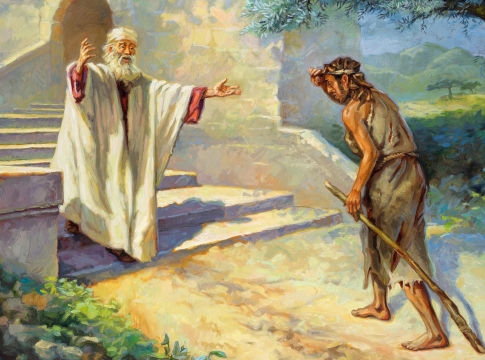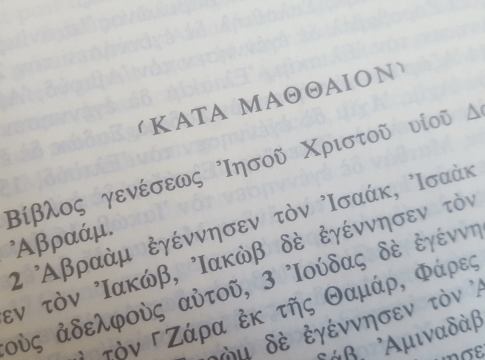
Since the Bible is the inspired word of God and is alive and active, you should begin reading it again after you have completed reading it (Hebrews 4:12).
The Bible is completely different
The Bible is a book just like any other, in that it has a beginning, middle, and end. You can read it from beginning to end just like any other book, so the question is, “What should I do when I’ve finished reading it?” In actuality, though, the Bible is unlike any other book in the entire world.
The Bible is the Word of God
This is because only the Bible is the Word of God, that is, the Bible is God’s own very words written down. For example, in the Old Testament many times the phrase “thus says the LORD” occurs (see e.g. Exodus 4:22; 1 Kings 11:31; Isaiah 7:7). Or, in the New Testament we read in Acts 4:24-25: “Sovereign Lord, who made the heaven and the earth and the sea and everything in them, who through the mouth of our father David, your servant, said by the Holy Spirit…” and then the rest of the verse quotes from Psalm 2. In other words, Psalm 2 was ultimately written by God Himself. Indeed according to 2 Timothy 3:16 “all Scripture is God-breathed…” In this verse the word “Scripture” refers to the Old Testament, but in 2 Peter 3:16 Peter puts Paul’s letters alongside “other Scriptures” [i.e. the Old Testament], thereby including them as Scripture. Indeed, based on verses like John 14:26 and 16:12-15 (where Jesus promises the Holy Spirit will remind the apostles and teach them) we can say that the New Testament is also Scripture; that it is God’s Word.
We hear God Himself speaking
The Bible is unlike any other book ever written because it is God’s Word; rather than being something to be studied and evaluated, when we read the Bible (or hear it authentically presented), we hear God talking to us and addressing us. Allow me to illustrate.
Listen to Gods voice
Israel laments to Moses in the book of Exodus, chapter 17, that they have no water to drink. After Moses prays to the LORD, the LORD answers, telling him to strike the rock, and water will flow (Exodus 17:1-6). At the end of verse 7, Moses refers to that location as “Massah” and “Meribah,” which respectively mean “testing” and “quarreling,” since Israel disobeyed the LORD and tested Him. When an Israelite read these passages in Exodus, written by Moses, they ought to have inspired them to pay attention to God, to trust Him without reservation.
The occurrence in Israel’s history is interestingly picked up and applied in Psalm 95:8–11, which says, “Today, if you hear His [God’s] voice, do not harden your hearts as you did at Meribah, as you did that day at Massah in the desert.” Put another way, God was communicating with people who authored Psalm 95 in precisely the same way as He had with Moses when He wrote Exodus 17.
Not only this, but Hebrews 3:7-11 quotes Psalm 95:7-11, but it introduces the quote saying “so, as the Holy Spirit says: Today, if you hear His voice…” That is, what the Holy Spirit said in the past, in Exodus 17 and Psalm 95, He is still saying (in Hebrews 3:7 “says” is in the present tense) when Hebrews was written. And indeed, the Holy Spirit is still saying the same thing to us today. From this we can draw a principle: what the Holy Spirit has said in Scripture, is still important for us today. Or as the author of Hebrews puts it: “the word of God is living and active. Sharper than any double-edged sword, it penetrates even to dividing soul and spirit, joints and marrow; it judges the thoughts and attitudes of the heart.” (Hebrews 4:12)
Read it again!
Thus, read the Bible again when you’ve done reading it! Since the Bible is God’s live and active Word to us, it will instruct, chastise, correct, and train us in righteousness so that we are prepared for all good deeds (2 Timothy 3:16–17). You can read the Bible cover to cover, but it can also be beneficial to concentrate on certain topics and examine what the Bible says about them. One excellent resource for doing so is the YouVersion Reading Plans. See a summary of the reading lists we have created for you by clicking this link, or visit the YouVersion homepage to find a plethora of reading lists covering a wide range of topics.





